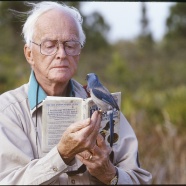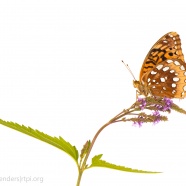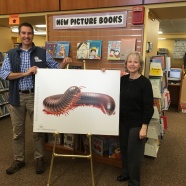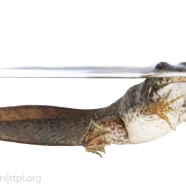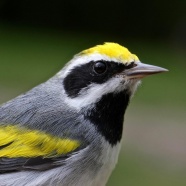Peterson’s Quest is Fulfilled – by Dale W. Mitchell
The publication of a new bird field guide is always a cause for celebration among birders. Even if the region it covers is rather distant, there are still many of us who would applaud its debut, want a peek at its glossy plates and gear up to gossip about its expertise and design. Well, there have been several interesting guides trotting onstage recently, but one is special in a way unprecedented and, dare I say it, even historic. For late last year out came Birds of the Indonesian Archipelago: Greater Sundas and Wallacea, by Eaton, van Balen, et al. As these books go, it seems to cover its...
Read MoreThe Great Spangled Fritillary!
The Great Spangled Fritillary (Speyeria cybele) and other native butterflies provide added splashes of color on summer days as they flit about our flower gardens, parks and roadsides. Butterflies don’t need much to thrive in our immediate vicinity. As long as you take extra care to plant native flowering plants that provide healthy foods for these animals (rather than non-native ornamental plants that don’t offer such benefits to our insects) and don’t spray pesticides, butterflies will be there to brighten your day (and pollinate your other flowers and veggies)!
Read MoreRoger Tory Peterson Institute and Prendergast Library Announce Summer Collaborative Programming
The Prendergast Library and RTPI are pleased to announce their collaborative summer initiatives, focused on the library’s Summer Reading Program and RTPI’s Project Wild America Program. Using the library system’s 2017 theme “Build a Better World”, both organizations will jointly host nature-themed events for library patrons of all ages, as well as offer opportunities to learn about and engage with some of the unusual wildlife that inhabits Jamestown’s backyards and open spaces. From June 27 through August 15, RTPI staff and summer student interns will host a weekly...
Read MoreBullfrog Metamorph
It’s the time of year that local green frogs and bull frogs are leaving their watery confines to try a life on land. These large frogs breed only in permanent bodies of water, because they spend several years as a tadpole before metamorphosis. Unlike our vernal pool species, which breed earlier and are leaving their temporary pools before they dry, these species rely on permanent water that allows their tadpoles to overwinter – sometimes several times, depending on latitude. Want to learn more about the frogs in your neighborhood? There are Peterson Field Guides for that thanks to Roger Tory...
Read MoreRemarkable Recapture
Golden-winged Warblers are among the most imperiled birds in North America. Their numbers have plummeted nearly 70% in the past 50 years, and this species continues to decline at a staggering 2.5% each year. Outside of their core breeding range in the upper Great Lakes Region (mostly Minnesota and Wisconsin) they have just about disappeared altogether, and several northeastern states now no longer have viable populations of Golden-winged Warblers around. What causes these declines? Well, a number of factors play a role here. Golden-winged Warblers prefer to live in open, wet areas that are...
Read More



